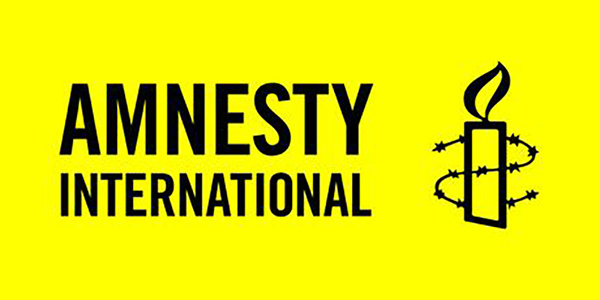OTTAWA – The recent murder of a Liberian national who had settled in Ontario has made one thing clear: Canada is failing to bring those suspected of crimes against humanity and war crimes to justice.
In late June, Bill Horace was shot dead in London, Ontario. He had been widely accused of committing mass murder, rape and torture in Liberia during the 1990s. Despite a mountain of evidence against him, Canadian officials never charged Horace, allowing him to live freely in this country since he first arrived in 2002.
On the heels of Horace’s murder, Amnesty International is releasing a new report in the No Safe Haven series, which documents how judicial systems around the world – including those in Bulgaria, Germany and Spain – are failing to effectively prosecute those suspected of crimes under international law, including war crimes and crimes against humanity. This latest report details how Canada’s Crimes Against Humanity and War Crimes Program is grossly underfunded and underused.
“More often than not, Canada washes its hands of the responsibility to adequately prosecute alleged war criminals, failing to take any action or opting to deport them without any guarantees they will be investigated for their crimes or be protected from serious human rights violations themselves,” said Alex Neve, Secretary General of Amnesty International’s English branch in Canada. “Longstanding failure to sufficiently resource efforts to bring persons suspected of responsibility for crimes under international law and human rights violators to justice in Canada through universal jurisdiction means that Canada risks impunity for those accused of the worst possible crimes in the world. Canada must do everything to ensure that such individuals face justice, rather than evade justice, in Canada.”
In 2000, Canada enacted the Crimes Against Humanity and War Crimes Act (CAHWCA), which enshrines universal jurisdiction for genocide, crimes against humanity, and war crimes in Canadian law. The result is that such crimes are criminalized in Canada even when committed abroad. But over the two decades since, only two individuals have been prosecuted under the CAHWCA, both linked to the genocide in Rwanda in 1994.
“This is not what was envisioned when Canada championed the International Criminal Court (ICC) and amended our domestic legislation to ensure this country would play a key role in delivering international justice,” said Lloyd Axworthy, who was the Federal Minister of Foreign Affairs when the CAHWCA was enacted and led international efforts to set up the ICC. “The intention was for Canada to dedicate the resources and political will needed to ensure that individuals accused of masterminding and carrying out terrible atrocities – genocide, war crimes and crimes against humanity – would have nowhere to hide and would, at long last, face justice for their terrible deeds.”
In R v Munyaneza, Désiré Munyaneza was convicted for war crimes, crimes against humanity, and genocide committed throughout 1994 in Rwanda and sentenced to life in prison with no possibility of parole for 25 years.
In 2009, Jacques Mungwarere faced prosecution for genocide and crimes against humanity in Rwanda, also during the 1990s. In July 2013, Mungwarere was acquitted, and the government is not appealing the decision.
No other charges have been laid for more than ten years.
“For 20 years, Canada has failed to adequately take up cases of universal jurisdiction,” said Fannie Lafontaine, Canada Research Chair on International Criminal Justice and Human Rights at Laval University. “Faced with an inadequate budget for criminal prosecutions, the War Crimes Program, which is tasked with ‘denying safe haven’ to individuals suspected of committing crimes against humanity and war crimes, has generally opted to screen individuals and deny them entry into Canada rather than seek prosecution. This means that those who have survived and witnessed horrific crimes around the world are left without adequate justice.”
From 1997 to 2007, over 17,000 cases of suspected war criminals were reviewed in the offices of the Canada Border Services Agency and Citizenship and Immigration Canada. More than 3,700 people were barred entry to Canada as a result. Between 2009 and 2015, 138 individuals were removed from Canada as there were reasonable grounds to believe they were involved in crimes against humanity, war crimes, or genocide, 285 people were denied refugee protection, 47 claimants were found inadmissible, and one person’s citizenship was revoked.
The budget for the War Crimes Program, in its entirety, is $15.6 million per year. This budget has remained static since the program’s inception in 1998, but the costs of conducting investigations have risen significantly.
In this latest No Safe Haven report, Amnesty International systematically reviews Canada’s efforts to implement its obligations to combat impunity for the most serious offences under international criminal law. Coordinated by Sébastien Jodoin, Canada Research Chair in Human Rights and the Environment at McGill University, and developed with the input of lawyers, legal scholars, and law students across Canada, the report makes several recommendations to the Canadian government, including increasing resources for the Crimes Against Humanity and War Crimes Program, improving the protection of and support for victims and witnesses and ending legal and political obstacles.
Media contact: Lucy Scholey, Media Relations, Amnesty International Canada (English branch), 613-853-2142, lscholey@amnesty.ca





















